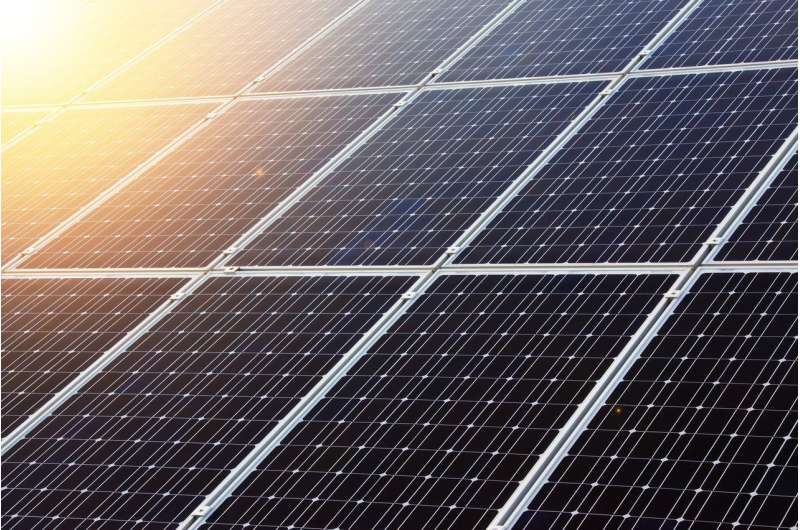Austin solar power startup's vision: Put product 'on every rooftop'

A few years ago, Omeed Badkoobeh was living in China and often traveling to remote locations when he noticed a trend that intrigued him—how often towns were relying on fuel-based generators for power
As a global studies graduate who had been studying solar power policy, Badkoobeh saw a market—and a need for—clean solar electricity.
Badkoobeh dove deeper into the industry, eventually moving to Austin and working at solar power companies here such as Native, while also doing a stint at Tesla, the electric vehicle company.
But Badkoobeh wanted to create his own innovative device, so along with an electrical engineer he'd met named Vikram lyengar, Badkoobeh founded Yotta Solar in 2016.
Two years later, the co-founders have developed a product they envision bolstering the solar energy industry. Named SolarLeaf, the technology protects batteries that are mounted on solar panels from weather conditions, giving the panels the ability to store power without being connected to a generator.
Yotta has been part of both the Austin Technology Incubator and Wells Fargo's Innovation Incubator, two startup accelerator programs that have helped the company raise money and gain notoriety.
Although solar panels have been around for decades, "there's always been an issue to store the power," Badkoobeh said. "We see our product on every rooftop helping to balance the energy grid."
The company name, Yotta, comes from a mathematics term. Yotta is defined as a factor of 10 that has been squared to the power of 24, a huge number that Badkoobeh said symbolizes the amount of power the company is trying to harness through its device.
The technology Yotta has developed centers around a thermal device that keeps batteries that are mounted onto solar panels from heating above 96 degrees or dipping below freezing temperatures.
One of the biggest challenges for solar panel technology is harnessing energy and storing it at a rate that matches with its demand, according to Andreas Stein, a chemist professor at the University of Minnesota whose research has partly focused on battery materials.
Creating better safeguards for batteries on solar panels is crucial, Stein said.
"The importance of (Yotta's) product is pretty clear," Stein said. "People are looking for better approaches to this, so they are answering a demand."
Yotta has already received recognition for its work.
The company was accepted last year into the University of Texas' Austin Technology incubator, an accelerator program that helps companies raise money by plugging them into ATI's more than 300-member network in Austin's tech community.
Austin is one of the top U.S. cities for solar energy, with about 4,500 rooftop solar installations present, according to a report in April by the Environment Texas Research and Policy Center.
Last year, Austin Energy bought the solar power produced by a 150-megawatt facility in West Texas for $150 million. The public utility says it supports more than 6,250 residential solar energy systems and 60 municipal projects, and said then that when the solar power comes online in 2020, more than half of the city's power needs will be covered by renewable energy.
In October, Yotta was also accepted into the Wells Fargo Innovation Incubator, a program created in 2014 and co-administered by Colorado's National Renewable Energy Laboratory to facilitate the commercialization and adoption of clean energy technology. By being accepted, Yotta will receive up to $250,000 to test and advance its product.
Yotta, which now has five employees and has raised more than $1.2 million, aims to commercialize the SolarLeaf technology by the end of next year. The technology is being tested at various sites that include clean energy organization Pecan Street in Austin, Badkoobeh said, and it will soon be tested at the National Renewable Energy Laboratory.
When it reaches market, the company said it will target commercial solar developers and utility companies not to fully replace their energy operations but rather help them to reduce dependency on old systems, which can become unreliable during emergencies such as power outages.
"The technology at the heart of SolarLeaf," lyengar said, "opens the bottlenecks that has held back integrating and co-locating solar generation and storage."
©2018 Austin American-Statesman, Texas
Distributed by Tribune Content Agency, LLC.



















